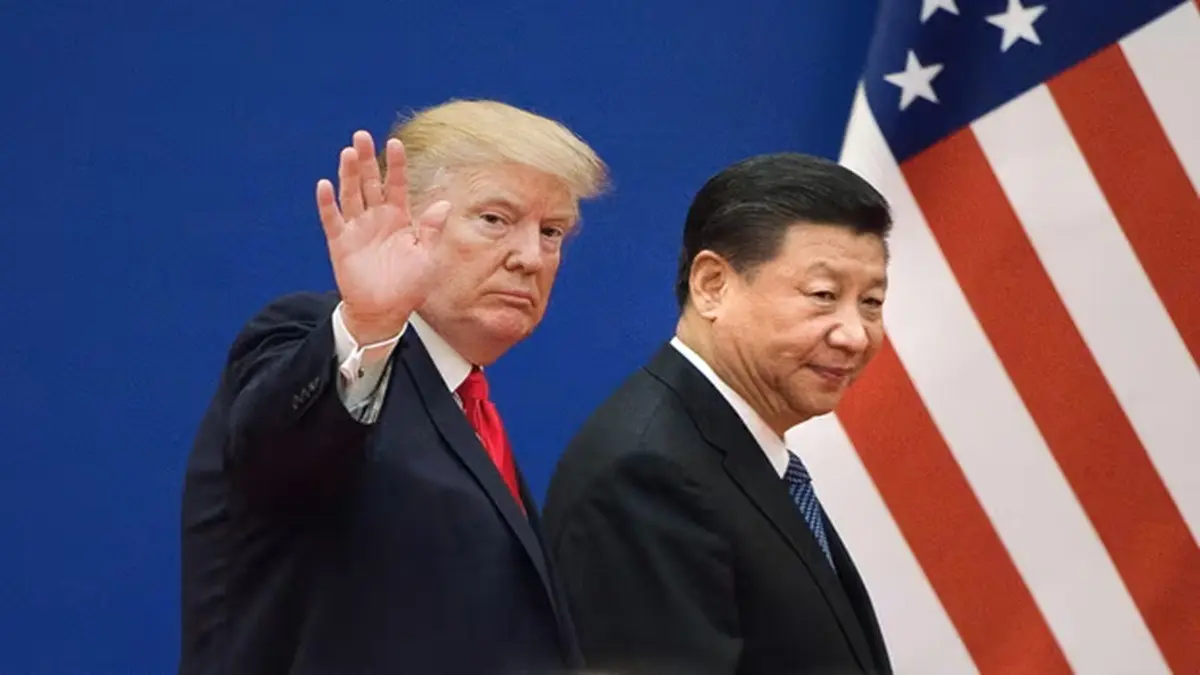Updated 9 June 2025 at 19:04 IST
US and China Resume Trade Talks in London to Ease Global Tensions
US delegation, led by Commerce Secretary Howard Lutnick and Treasury Secretary Scott Bessent, will meet with Chinese officials.
- World News
- 3 min read

London is set to host a critical round of trade negotiations between the United States and China on Monday, June 9, 2025, as the world’s two largest economies strive to resolve a trade war that has rattled global markets. The talks aim to address escalating tensions over tariffs, rare earth exports, and access to advanced technology, which have disrupted supply chains and threatened economic growth worldwide.
High-Stakes Meeting in London
A senior U.S. delegation, led by Commerce Secretary Howard Lutnick, Treasury Secretary Scott Bessent, and U.S. Trade Representative Jamieson Greer, will meet with Chinese officials, including Vice Premier He Lifeng, who serves as Beijing’s lead trade negotiator. The discussions follow a temporary truce agreed upon in Geneva last month, which reduced U.S. tariffs on Chinese goods from 145% to 30% and China’s tariffs on U.S. imports from 125% to 10%. However, both nations have accused each other of violating the agreement, with disputes centering on critical issues like rare earth minerals and computer chips.
The talks come on the heels of a 90-minute phone call between U.S. President Donald Trump and Chinese President Xi Jinping last week, which Trump described as a “very good talk” that “resulted in a very positive conclusion for both countries.” According to China’s state news agency Xinhua, Xi urged the U.S. to “withdraw the negative measures it has taken against China,” signaling Beijing’s frustration with recent U.S. restrictions.
Rare Earths and Chips: The Core Issues
At the heart of the negotiations are Chinese exports of rare earth minerals, which are vital for manufacturing smartphones, electric vehicles, military equipment, and other high-tech products. China produces about 69% of the world’s rare earths, giving it significant leverage in global supply chains. In April, Beijing imposed export restrictions on these minerals, causing shortages that have disrupted industries worldwide, particularly in the U.S. and Europe. Automakers, for instance, have faced production delays as stockpiles dwindled.
Advertisement
On the other side, the U.S. has restricted China’s access to advanced semiconductors and chip-design software, citing national security concerns. The Trump administration has also warned against using chips from Chinese tech giant Huawei and has revoked visas for some Chinese students, further straining relations. Beijing views these measures as punitive and has called for their removal as a condition for easing its own export controls.
A Fragile Truce Under Pressure
The Geneva agreement in May was meant to provide a 90-day window for negotiations, but tensions have flared since then. The U.S. claims China has been slow to approve rare earth export licenses, with White House National Economic Council Director Kevin Hassett stating on CBS News that exports are “higher than they were, but not as high as we believe we agreed to in Geneva.” Meanwhile, China’s Commerce Ministry has accused the U.S. of undermining the truce by imposing new restrictions on chip software and student visas.
Advertisement
The trade war, which intensified after Trump imposed sweeping tariffs in April, has had far-reaching consequences. The Organization for Economic Co-operation and Development (OECD) recently lowered its global economic growth forecast from 3.1% to 2.9%, citing increased trade barriers as a major factor. Businesses worldwide are grappling with supply chain disruptions, and consumers may face higher prices if the conflict escalates further.
Published By : Sagar Kar
Published On: 9 June 2025 at 19:04 IST
